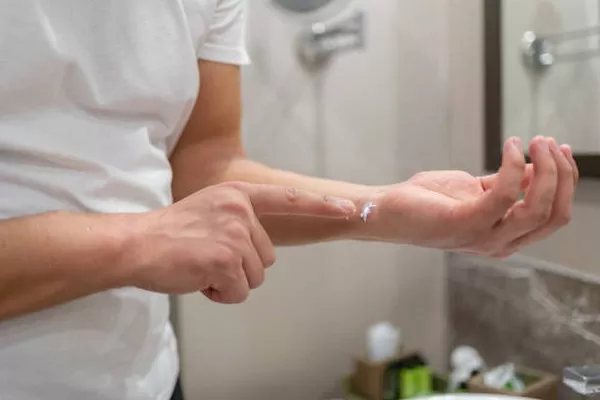In the realm of medical anomalies, few conditions elicit as much fascination and concern as aquagenic urticaria, commonly referred to as “water allergy.” This rare affliction, though thankfully rare, casts a shadow over the lives of individuals like 22-year-old Loren Montefusco from South Carolina, US, offering a glimpse into the perplexing challenges faced by those grappling with this debilitating condition.
Aquagenic urticaria transforms the ordinary act of water contact into a distressing ordeal, triggering an excruciating burning itch beneath the skin upon exposure to water. At its core, this condition stems from an abnormal immune response to water’s interaction with the skin, culminating in the release of histamine and subsequent hives, welts, and itching.
Researchers have delved into the genetic underpinnings of water allergy, identifying mutations in genes such as FABP5, crucial for skin barrier function, as key contributors. These genetic variations impair the skin’s ability to repel water, instigating an inflammatory cascade. Environmental factors, including hormonal fluctuations and chemical exposure, further exacerbate susceptibility to the condition.
Despite advancements in genetic research, much about aquagenic urticaria remains shrouded in mystery. However, interdisciplinary efforts integrating insights from genetics, immunology, and dermatology offer promise in unraveling the secrets of this enigmatic condition, paving the way for improved diagnosis and management strategies.
While aquagenic urticaria has been documented since the late 20th century, its rarity and complexity continue to challenge medical professionals. Heightened awareness among healthcare providers and advancements in diagnostic techniques have led to a gradual increase in reported cases, yet the condition remains exceedingly rare, with fewer than 100 documented cases globally.
Managing aquagenic urticaria poses a formidable challenge, necessitating a multifaceted approach encompassing conventional allergy treatments, experimental therapies, and lifestyle adjustments. While antihistamines and corticosteroids offer temporary relief, experimental modalities such as phototherapy and biologic agents hold promise in targeting the underlying immune pathways implicated in allergic reactions.
Navigating the emotional toll of living with aquagenic urticaria requires a holistic approach, encompassing psychological support and coping strategies. Counseling and support groups provide invaluable resources for individuals grappling with the emotional burdens of a chronic and misunderstood condition, fostering resilience and improving overall quality of life.
As researchers continue to unravel the intricate mechanisms underlying aquagenic urticaria, ongoing clinical trials and studies are imperative to evaluate the efficacy and safety of emerging therapies. Despite the challenges posed by limited patient numbers, concerted efforts hold the potential to transform the landscape of aquagenic urticaria treatment, offering hope to those affected by this rare water allergy.


